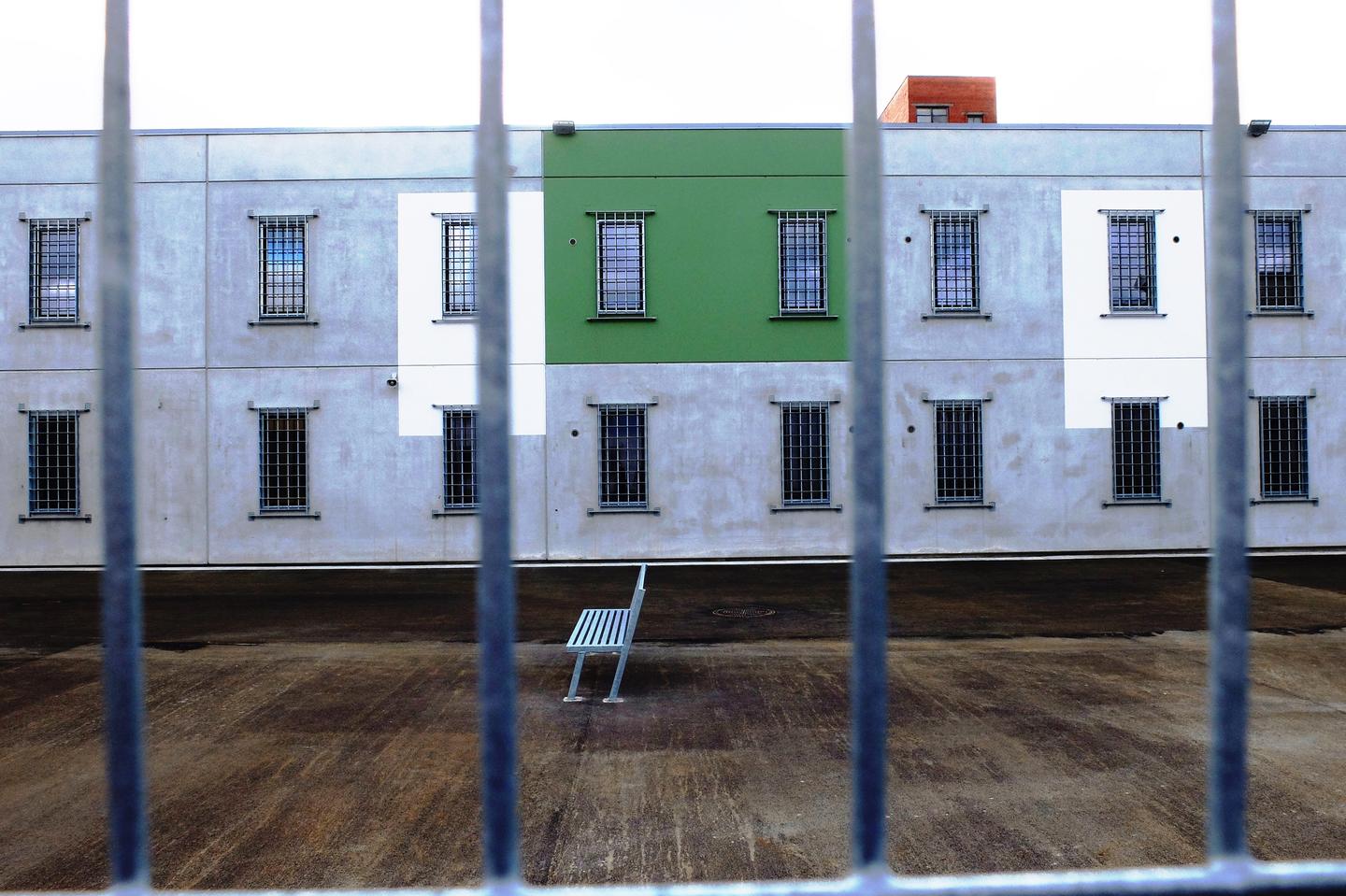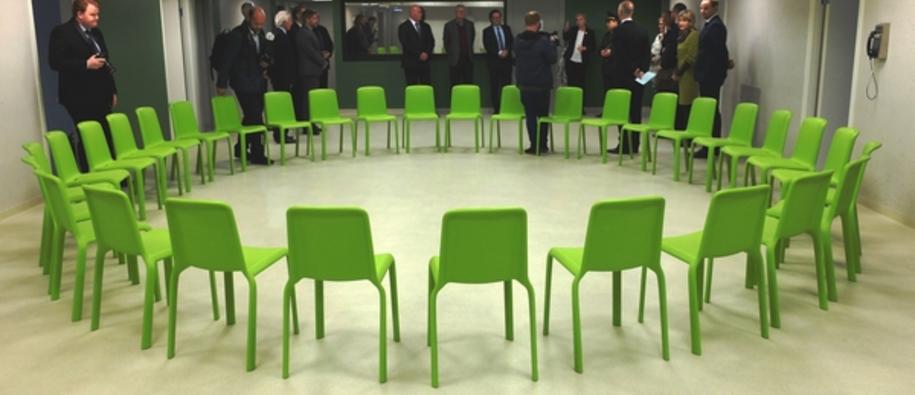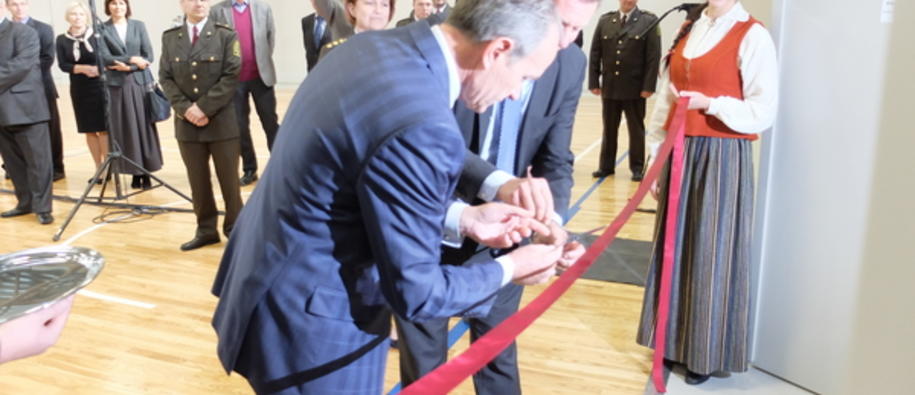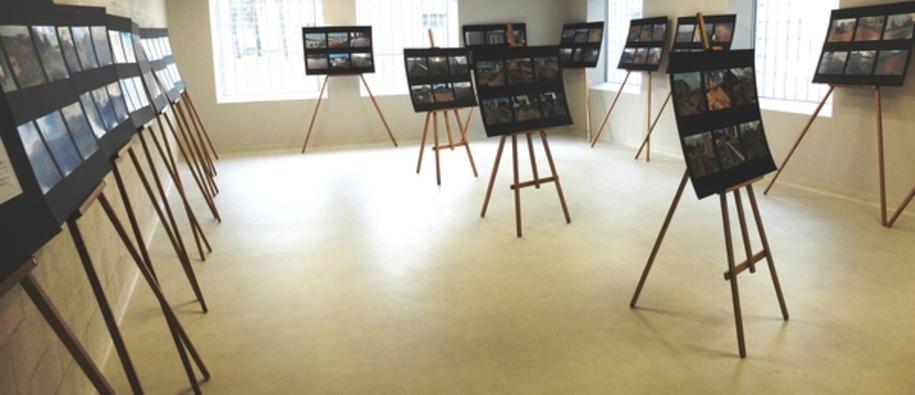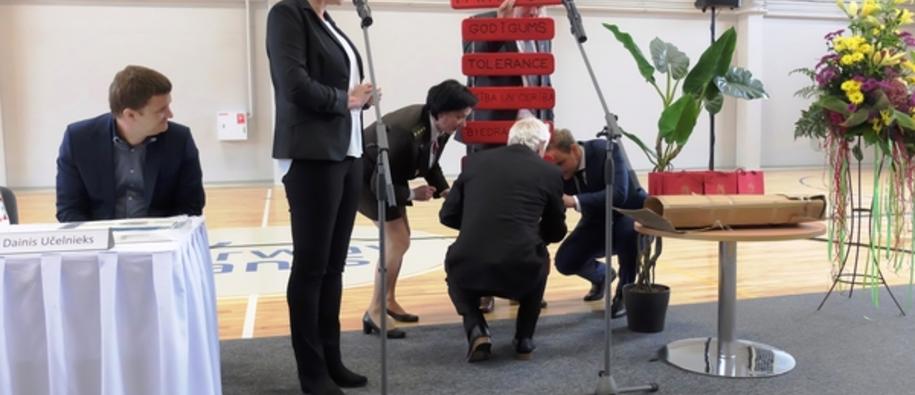The official opening was attended by several high-level officials within the area of justice in both Latvia and Norway, as well as the Norwegian Embassy in Riga, and marked a new shift in the Latvian prison system. With the new centre, shortcomings in the Latvian prison system, such as the total lack of drug prevention strategies and treatment programmes provided to inmates struggling with drug abuse, will be addressed.
In response to the increasing number of drug users in Latvian prisons and the implications this has for any meaningful attempts at rehabilitation, the new centre can accommodate up to 200 inmates in eight separate departments, and offer treatment for inmates with drug and alcohol-related problems.
An important day
Until now, there has been a lack of treatment programmes and facilities for inmates with drug problems in the Latvian prison system, and there are great expectations associated with the new prison unit.
“This is an important day for us. I’m impressed by both the effectiveness and quality of the construction work,” said Latvian Minister of Justice Dzintars Rasnačs when he participated at the opening of the new building.
In his speech, Rasnačs emphasised how important the new rehabilitation and treatment centre will be for inmates struggling with drug abuse or addiction problems:
“The new centre will contribute to help inmates prepare to re-integrate in society once released,” the minister said.
On behalf of the Norwegian Government, the Norwegian Ambassador to Latvia, Steinar Egil Hagen, congratulated everyone involved in the project. Hagen underlined that the project fits well with the two objectives of the Grants – reducing economic and social disparities and strengthening cooperation with the beneficiary countries – and praised Latvian and Norwegian authorities for their efforts and cooperation while working on this project.
Norwegian knowledge and expertise
The project was carried out in cooperation with the Directorate of Norwegian Correctional Service (KDI), the Correctional Services of Norway Staff Academy (KRUS) and Oslo Prison’s department ‘Pathfinder’. While KDI coordinated the project from the Norwegian side, all three partners shared knowledge and expertise on drug re-socialisation programmes.
The centre will focus on alternative treatment programmes for inmates with addiction problems, and will work to prevent reoffending by inmates. The main focus will be to teach the inmates collaborative skills – and treat drug dependency with therapy, physical activity and social contact instead of medicines. The treatment programmes are inspired by similar programmes in Poland and Norway – Atlantis and Pathfinder. While the first one focus mainly on psychological support and making the individual inmate aware of his or her dependency problem, the second programme places emphasis on socialisation and group work aimed to help each individual inmate embark upon a process of change while still serving their sentence.
The Pathfinder is one of 13 rehabilitation and treatment programmes in Norwegian correctional service, and has 15 years of experience with drug dependency work in prison. Through the project, they provided the Latvian Prison Administration with knowledge and expertise on how to work with inmates with addiction problems, develop successful rehabilitation programmes and train staff.
“The centre is a construction of the future – not the past. It is important that the building is practical – but what is even more important is the people working there. It is vital to have a sufficient number of people at work, and they need to be qualified for the task. The most challenging work starts now,” said director of the Directorate of Norwegian Correctional Service, Kim Ekhaugen.
New approaches
Director of the Latvian Prison Administration, Ilona Spure, expressed hope that the new rehabilitation centre will be a place for treatment and re-socialisation of inmates.
“Though, this will also be a place where we will try out new approaches and methods,” Spure said.
Prison guard Roy Jensen brought greetings from the staff at Oslo Prison’s department ‘Pathfinder’ to Latvian colleagues:
“Working with rehabilitation of addicts is demanding. The staff who work here must be as solid as the building you work in. And remember to take care of each other,” said Jensen. He has more than 25 years’ experience of working with drug users in prison.
A total number of 70 employees will be working at the new centre. The staff has undergone six months of training, and includes both prison guards, psychologists, mentors, teachers and lawyers.
The rehabilitation centre houses a sports hall, training rooms, library and computer labs – as well as separated areas dedicated to prison cells, treatment and education. The first inmates will be admitted in late October.
Find out more
The project has received €7.1 million in support from Norway through the Latvian ‘Reform of the Latvian correctional services and police detention centres’ programme. The programme aims to improve prison conditions and prisoner rehabilitation as well as promote alternatives to imprisonment. Directorate of Norwegian Correctional Service (KDI) is the donor programme partner.
